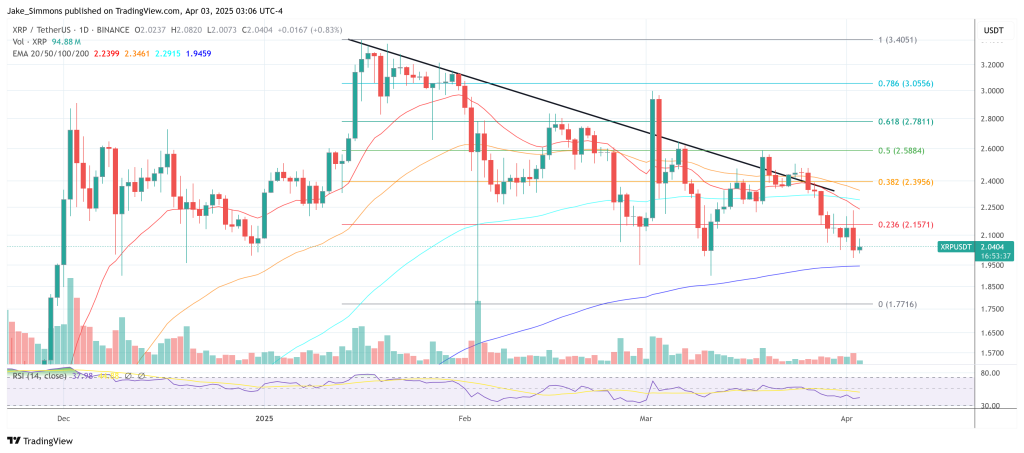There has been a lot of questions about cryptocurrency taxes this year. There is even a new r/cryptocurrency bot that will reply to this about taxes and it’s pretty helpful. I file my American taxes from abroad and they’ve only ever asked if I have crypto in the last two years. So here is (almost) all you need to know.
TurboTax states: ”If you earn cryptocurrency by mining it, it's considered taxable income and might be reported on Form 1099-NEC at the fair market value of the cryptocurrency on the day you received it. You need to report this even if you don't receive a 1099 form as the IRS considers this taxable income.”.
While platforms like Koinly claim: ”With Koinly you can import your ETH, BTC, Tezos and other transactions directly from the ledger, sync all your exchange trading history in one-click and get a ready-to-file tax report -- all in a matter of minutes!”.
CoinTracker says similar: ”CoinTracker helps you become fully compliant with cryptocurrency tax rules. Download your tax reports in minutes and file with TurboTax or your own accountant. Full support for US, UK, Canada, and Australia and partial support for others.”.
The IRS classifies virtual currencies as property - so under U.S. tax law, Bitcoin and other cryptocurrencies are classified as property and subject to capital gains taxes. But you only owe taxes when those gains are realized. It also depends on how long you held the bitcoin and whether you sold it for a profit or a loss. If you owned your coins for more than a year, you will pay a long-term capital gains tax rate on your profit, which is determined by your income. For single filers, the capital gains tax rate is 0% if you earn up to $40,000 per year, 15% if you earn up to $441,450 and 20% if you make more than that. Some IRS worksheets can help you do said math.
If you owned your crypto for less than 12 months, the taxes you pay will be the same as your normal income tax rate.
If you sell it (and didn’t hodl) and you lost money, that’s still a tax write-off of the amount you lost - you can use your losses to lower your taxable income by a maximum of $3,000 ($1,500 for married filing separately) and can carry over any additional losses to future years.
Here’s the things - The IRS thinks there's massive, massive underreporting in this area, and they are soon going to start targeting it - the cryptocurrency question is the first item on the 1040 form just below the individual's contact information - so ppl can’t say ‘I didn’t see the crypto part officer!’
Spending your bitcoin isn't all that different from selling it in the eyes of the IRS - their website states that "the use of virtual currencies to pay for goods or services . . . generally has tax consequences that could result in tax liability."
A quick tldr of the above part; if you trade or sell cryptocurrency, if you use cryptocurrency to buy any products, if you accept cryptocurrency as a form of payment, or if you mine crypto; those are all probable taxable events.
Now, the IRS warns that those who do not report income correctly can face penalties, interest, or even criminal prosecution. But here’s the trillion dollar question; how can they enforce this?
Yes, blockchains are open source ledgers, but they would need everyone’s wallet addresses KYC’d to all exchanges to track everyone!
And while it's easy to trace cryptocurrency, specifically Bitcoin with newly developed cryptographic technology capable of breaking through the pseudonymity or anonymity of most cryptocurrencies - the main function is to trace transactions reported to the gov as suspicious and fraudulent linking them together into a visualization that will enable it to pinpoint the sources and destinations of illicit assets.
But here’s the real thing; they do not have the man power to do that just yet.. STILL, it is recommended to get a certified accountant when attempting to file cryptocurrency taxes, at least for the first time, as CPAs and other tax professionals are only now learning more about crypto assets, but until then, the IRS is letting people ’become accustomed to the new way of doing things’ and have only just published a guide on amending old tax returns that includes some reference to cryptocurrency.
Furthermore, the government is tolerating a gradual yet substantial induction of cryptocurrency into conventional financial services, yet seems to be changing their mind almost monthly on the issue. The current administration is signing executive orders that badly word crypto aspects into law, while many haven’t passed and have only spooked markets. Long paragraph short it’s an ever-changing legal landscape that is bound to evolve over the next few years.
If you want to avoid being taxed on your cryptocurrency, do not trade or sell them. It is only the selling and trading and mining that triggers them to be taxable!!
Remember, tax evasion is illegal but tax avoidance is recommended. If you don’t wanna be taxed, don’t sell. Europe is trying to make non-KYC’d wallets illegal, but won’t ever eliminate them from existence. Be smart about your investments & research the tax laws of your country. Happy hodling everyone!
[link] [comments]

You can get bonuses upto $100 FREE BONUS when you:
💰 Install these recommended apps:
💲 SocialGood - 100% Crypto Back on Everyday Shopping
💲 xPortal - The DeFi For The Next Billion
💲 CryptoTab Browser - Lightweight, fast, and ready to mine!
💰 Register on these recommended exchanges:
🟡 Binance🟡 Bitfinex🟡 Bitmart🟡 Bittrex🟡 Bitget
🟡 CoinEx🟡 Crypto.com🟡 Gate.io🟡 Huobi🟡 Kucoin.



















Comments